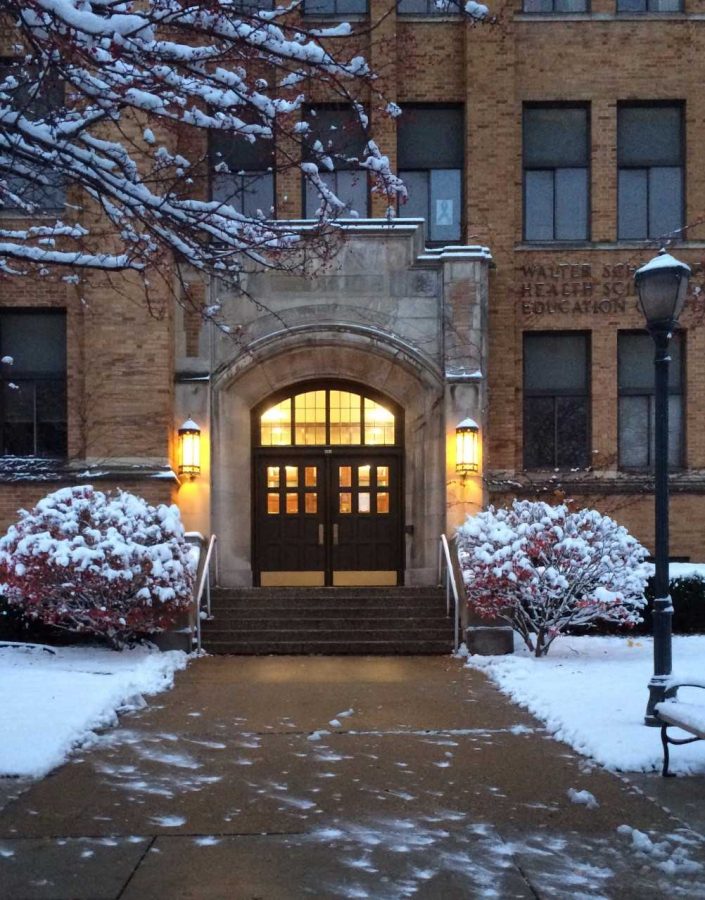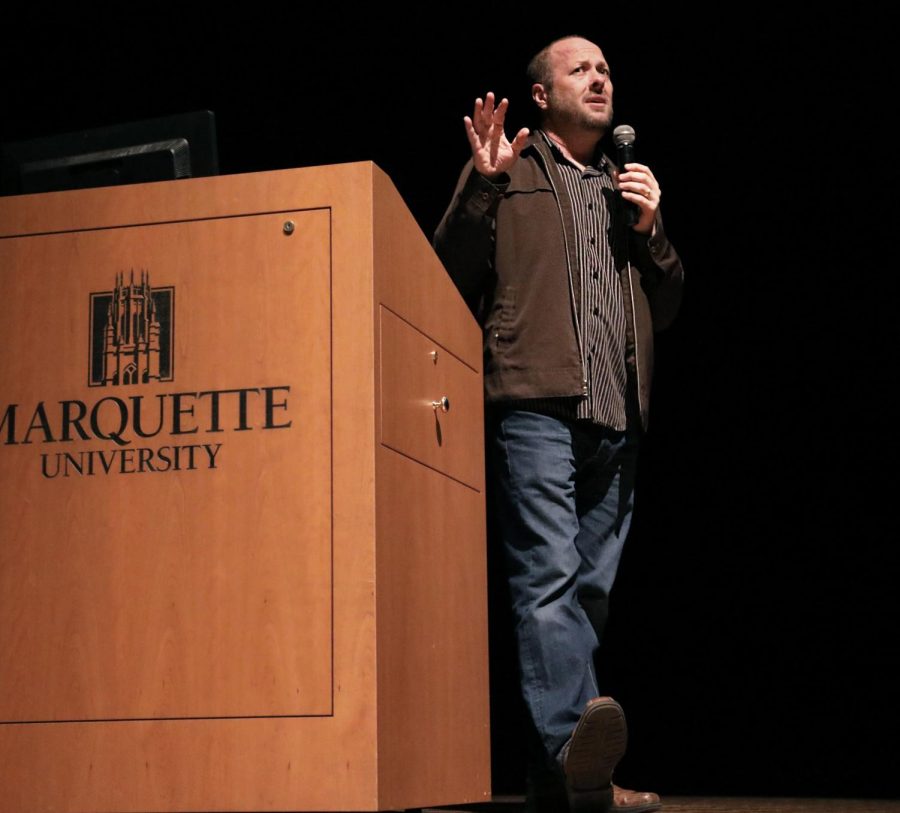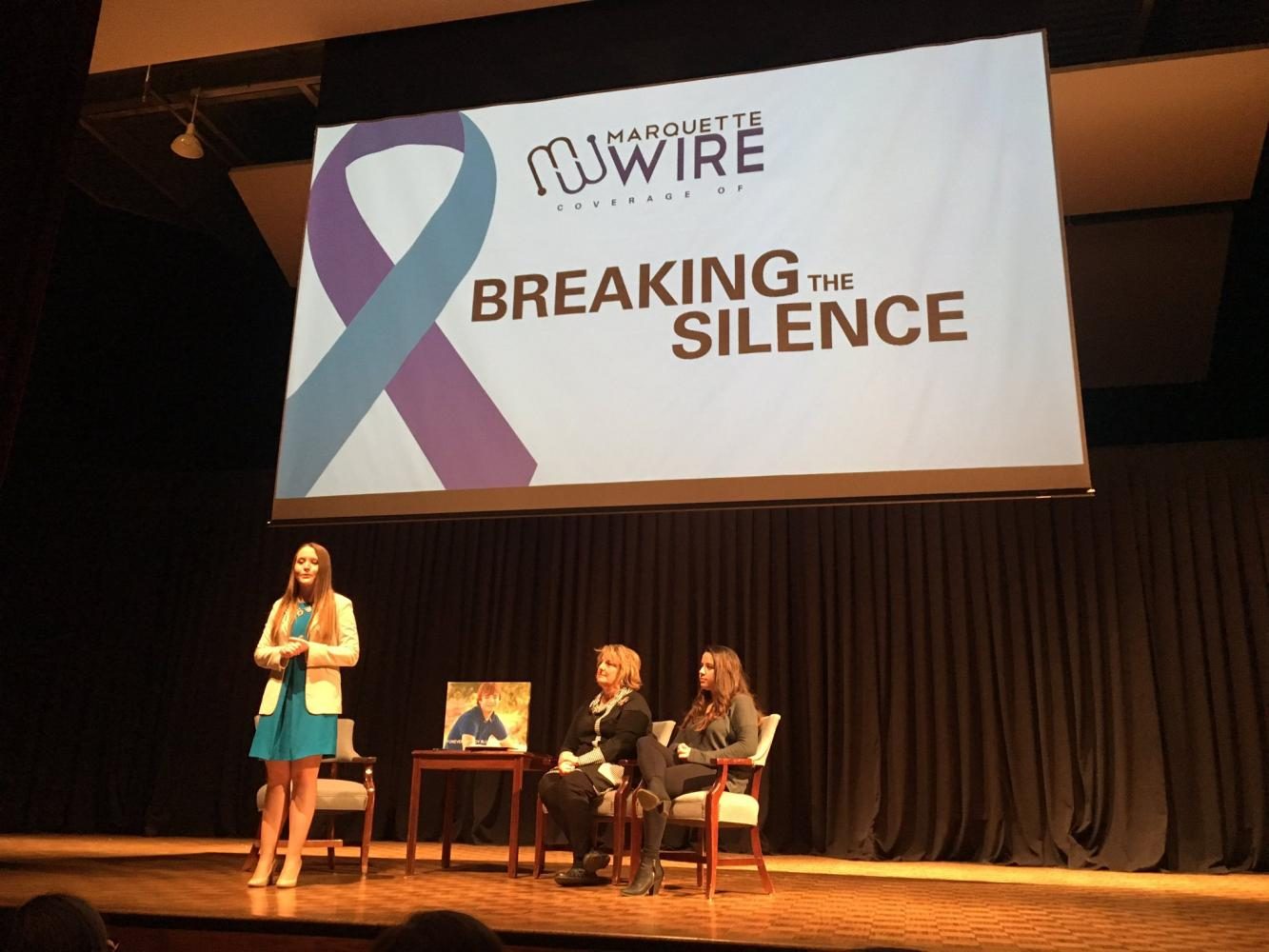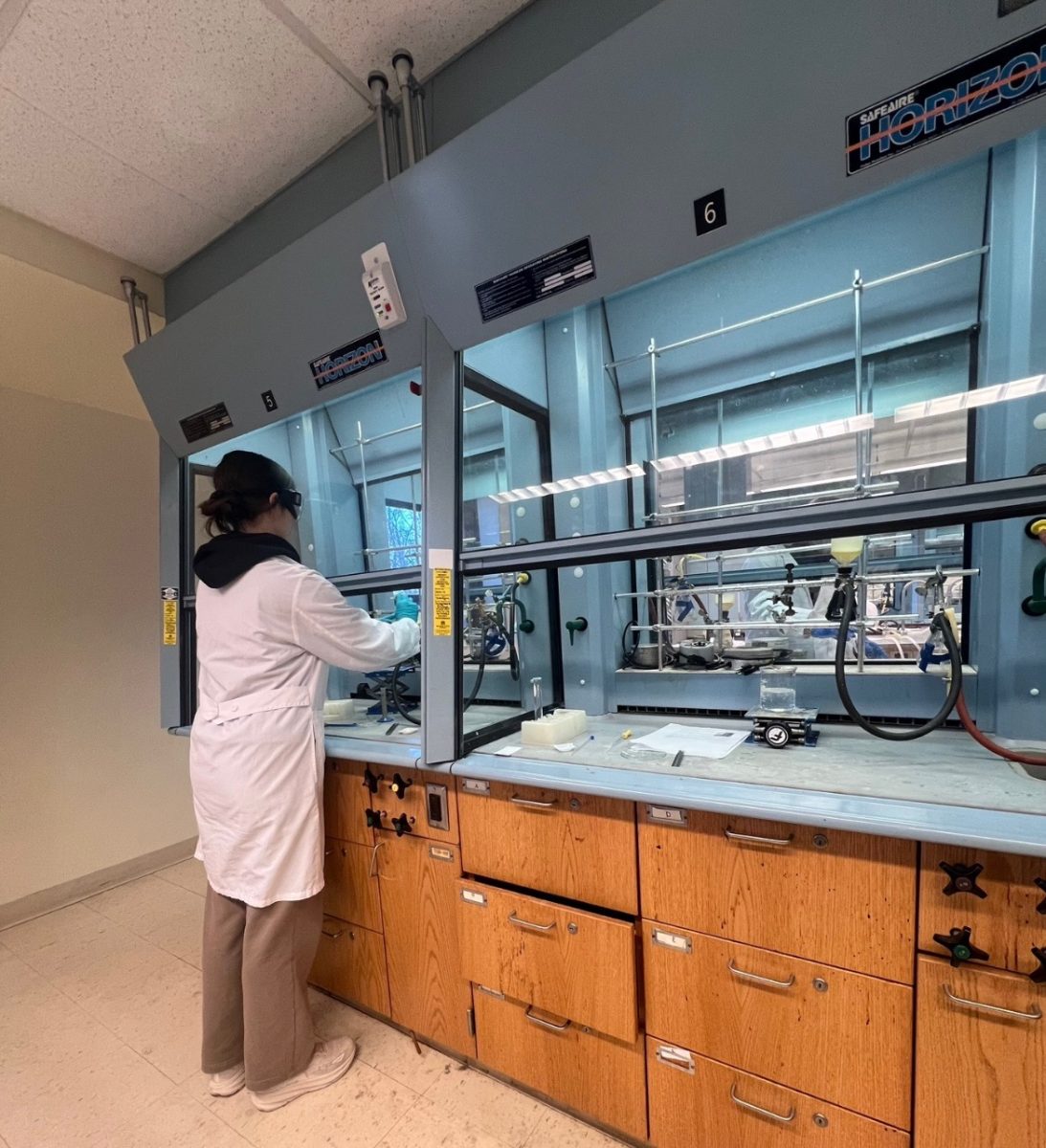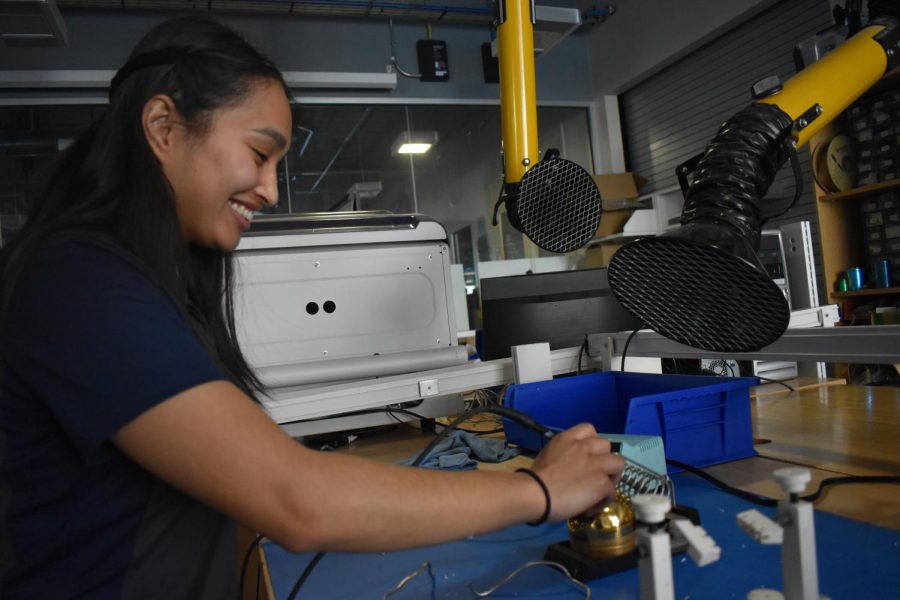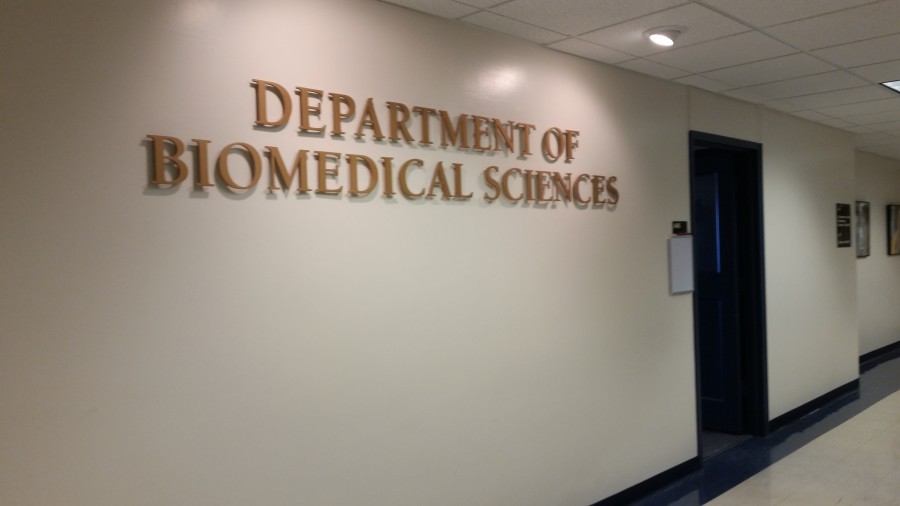The College of Health Sciences received a $1 million gift pledge from Michael and Jeanne Schmitz to further the college’s research on depression and mental illness.
William Cullinan, the dean of the College of Health Sciences, said donations from investors like the Schmitz family are moving research in the direction of finding better treatment options for people who suffer from depression.
The Schmitz family lost their son Joey to suicide when he was a freshman in college. Their gift to the College of Health Sciences makes possible what Cullinan calls “high impact, high yield” projects. These are novel, high-risk projects that do not typically receive federal funding, Cullinan said.
“When those experiments work, they have the capacity to move a field. That’s what we’re excited about,” Cullinan said.
Paul Gasser, a professor and researcher in the College of Health Sciences, studied the relationship between stress and disorders like PTSD and drug abuse for nearly 20 years. Many times, progress in his field is made incrementally, Gasser said. However, like Cullinan, Gasser recognizes the potential that gift pledges have to make immense change.
For Kelli Cole, a senior in the College of Health Sciences, the impact of the Schmitz family donation is clear. Cole worked on research in Cullinan’s lab May 2016 and also participated in an additional lab with Gasser in the Summer Research Program. She said Gasser’s lab is looking at a cellular transporter that may explain why antidepressants have varying levels of efficiency for different individuals.
“The Schmitz family’s generous donation will help our research here at Marquette continue to make important discoveries about the brain and how it works,” Cole said in an email. “Specifically, it will help me to utilize newer technologies and methods with my experiments to search deeper into my area of study.”
One thing that is encouraging about the current research he is conducting is that his team is taking an integrative approach, Cullinan said.
“The research that we do in my lab and across the entire group of some 13 neurosciences departments in this college has a great bearing on discovering new ways to treat not only depression, but other mental illnesses,” Cullinan said.
Identifying the physiological and biological bases of depression and stress is central to the mission of Cullinan’s lab.
“Depression is a biological disease. When we understand it that way, there ought to be a biological solution,” Cullinan said.
There were eight projects related to depression conducted this past summer across the College of Health Sciences. These projects were conducted to generate data that would be used to leverage a major federal grant.
Because the department pools together their research and knowledge, Cullinan said he believes that the collective group has the expertise to understand a wide range of mental illnesses including schizophrenia, obsessive-compulsive disorder, and addiction.
“I’m really happy to see such an interactive and powerful group. None of us are working in a vacuum,” Cullinan said.

